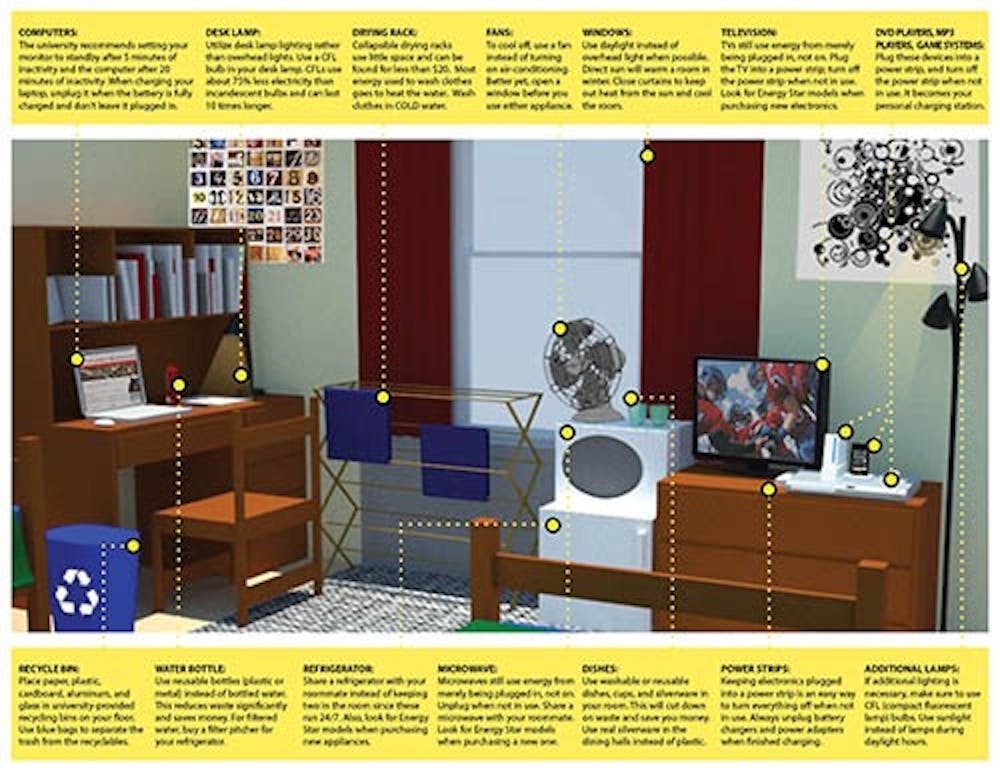The Ball State Energy Action Team is expanding its energy hall challenge this semester to include an academic building energy challenge.
“It will be up to professors in classes to turn off the projector when they are done using it, when they leave their office at night to turn off their computers and just little things like that,” said Abby Rondot, a senior public relations major and president of BEAT.
The residence hall and academic building challenges will run at the same time but as separate challenges from March 18 through April 15.
Each semester, BEAT hosts an energy hall challenge for those students living on campus. Last semester, Elliot Hall won the four week long competition.
“The goal is to educate students,” she said. “The other huge point we try to put emphasis on is that you might be doing only one thing, but together it does make a big difference.”
Prior to the competition, Facilities Planning and Management measures the average energy usage of each hall. During the challenge, energy rates are compared among the halls to determine the winning hall that gets a pizza party.
Student groups such as BEAT are important for the campus, said Kevin Kenyon, adviser for BEAT and associate vice president of Facilities Planning and Management.
“Their main focus is on energy conservation, looking at various ways to encourage people to use less energy,” he said. “They don’t get directly involved with technological solutions, they look more for behavioral and educational solutions.”
Other organizations such as the Residence Hall Association help to get BEAT’s cause out to students.
“The easiest way for any organization to contact every hall at the same time is to come to us because every hall has a representative,” Ryan Cole, RHA president, said.
For students involved in the challenge, Rondot said BEAT tries to provide helpful tips such as unplugging things not in use, hanging clothes to dry and watching a movie on one television versus multiple in the halls.
The Student Government Association, like RHA, helps to promote the challenge to the student body.
“Our big thing is to make sure students know about it,” Chris Wilkey, SGA president, said. “Since we represent the entire student body, we tell senators to make sure they tell people they interact with on a daily basis that this is going on.”
Rondot encourages students to participate because the energy hall challenge is important for the campus.
“These are lessons you can learn when you move off campus, move out in your own house and save money on your energy bill,” she said. “I hope the message goes through and spreads to students.”
Wilkey said it’s important to learn through the challenge what students can do to save campus energy and, ultimately, money.
“You can realize maybe I am the one affecting that — leaving my door open all day or leaving the air on or the heat up and causing the university to pay a little more money and harming the environment,” he said. “It’s about the smaller things that add up to the bigger picture.”
Although the energy challenge itself is important, Kenyon encouraged students to take what they learn from the competition and apply it after college.
“It’s an opportunity for students to participate in issues that are both important to the campus and important to students and their future,” he said. “Sustainability is something you don’t leave behind when you graduate from college, you should take it with you.”


